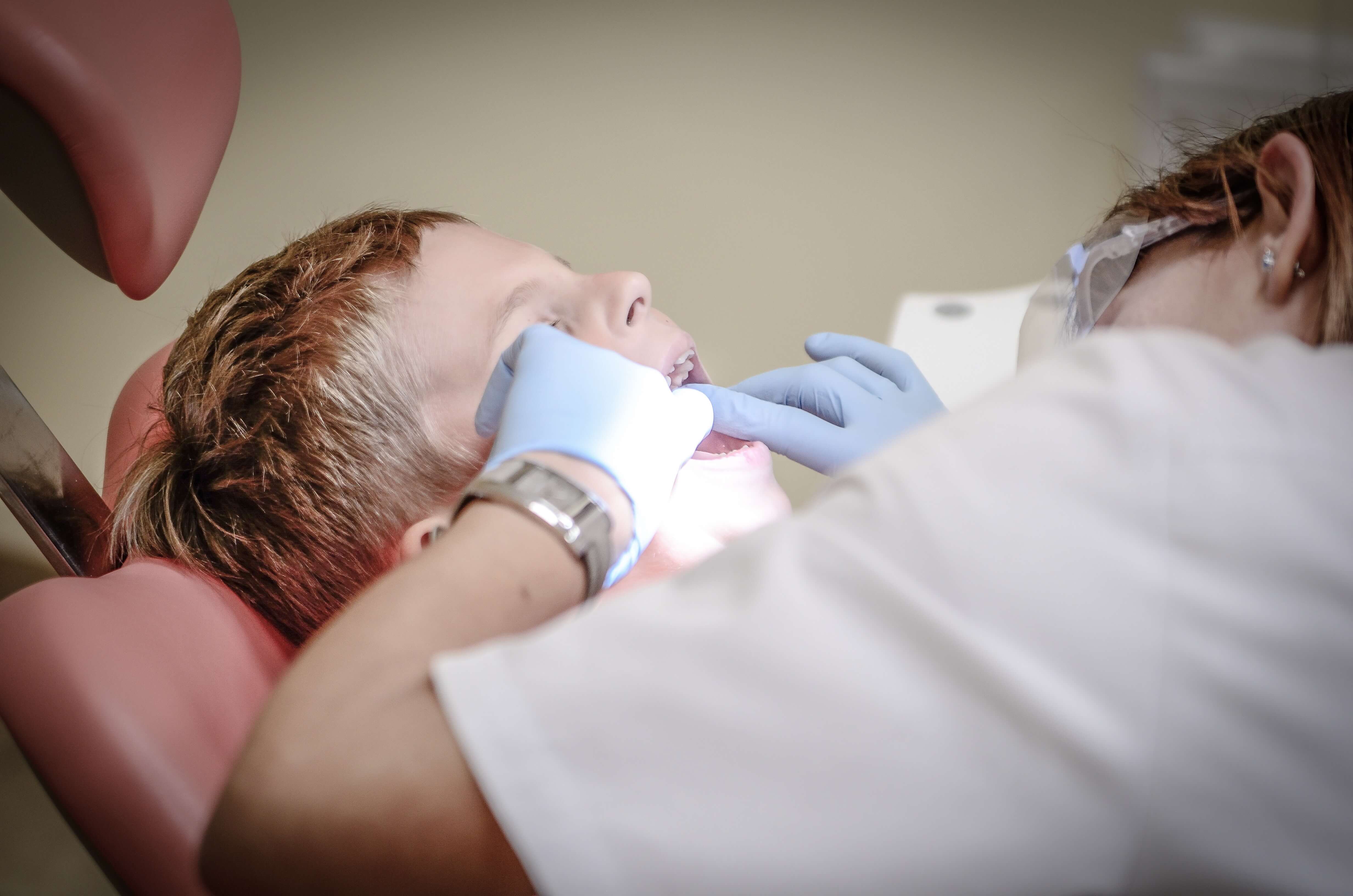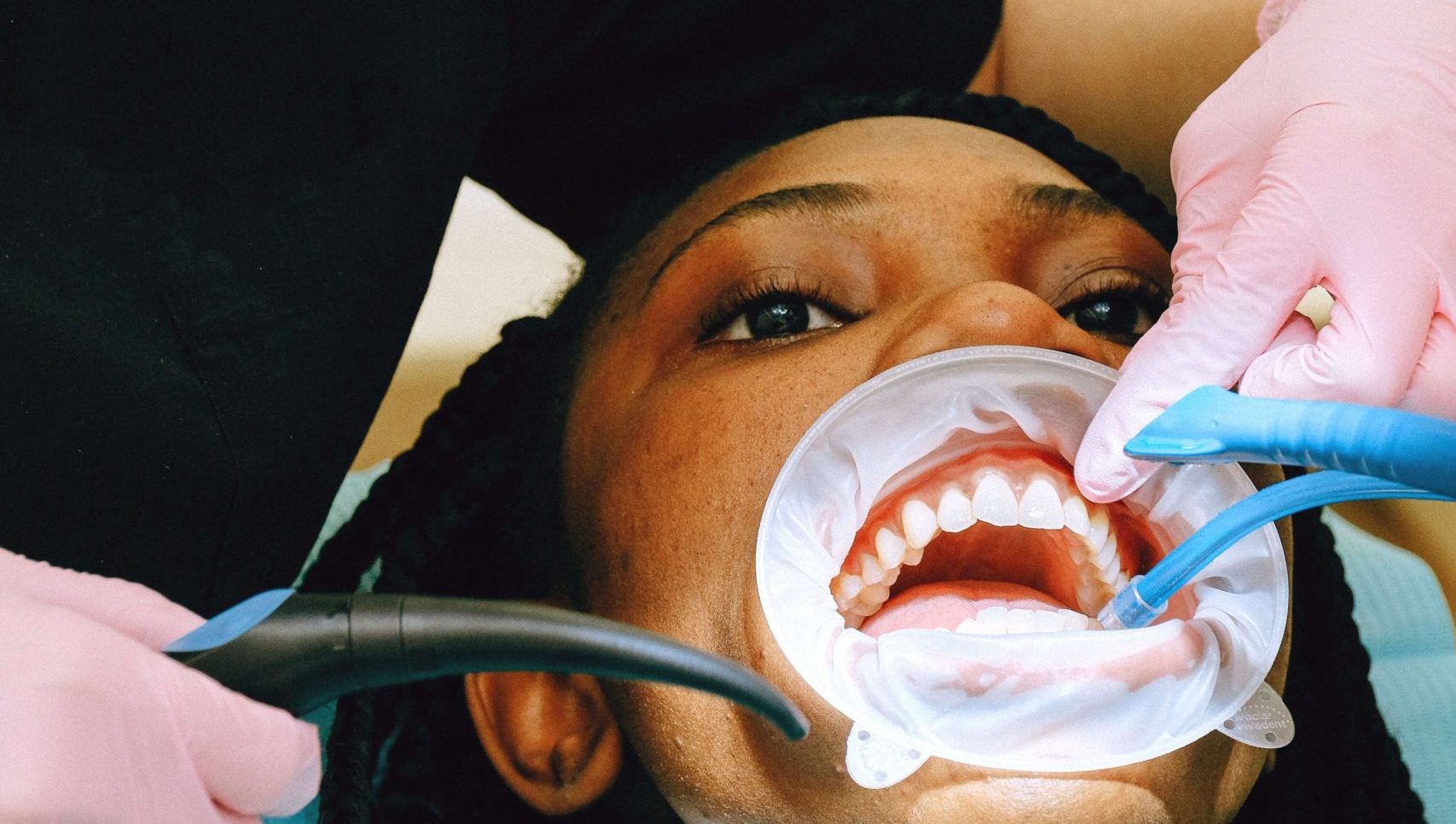Helpful Information
Read below to find out more information on how to look after your smile.

Childrens Dental Care
Preventative care right from the beginning can help your child have a bright and healthy smile right into adulthood. See our advice below around steps you can take to look after the health of your child’s mouth.
Use a soft bristled toothbrush with rounded edges. Make sure the toothbrush allows you to reach all the way to the back of the mouth. Hold your toothbrush at a 45 degree angle to your teeth. The bristles of the brush should be directed towards the gum line. Brush all three surfaces of the teeth, the chewing surface, the cheek side, and the tongue side. Brushing your teeth should take a minimum of 2 minutes to complete. Most people will miss the same spots repeatedly. To avoid this, change up your usual brushing pattern. We recommend that you replace your toothbrush every three months.
Toothaches can be common in young children. Sometimes, toothaches are caused by erupting teeth, but they also could indicate a serious problem.
You can safely relieve a small child’s toothache without the aid of medication by rinsing the mouth with a solution of warm water and table salt. If the pain doesn’t subside, pain killers eg acetaminophen may be used. If such medications don’t help, contact your dentist immediately.
Fluoride is a mineral found in food and most drinking water systems. Fluoride is important to our oral health because it makes our teeth more resistant to decay. If your drinking water does not have acceptable levels of fluoride there are supplements that your dentist could recommend. A fluoride toothpaste sometimes is not enough. Too much fluoride can also pose a problem. Dental fluorosis, a condition that can affect the look of the tooth is the result when too high an amount of fluoride is ingested in early childhood.
Young children often experience a toothache. This could be a result of erupting teeth. You can help to relieve a childʼs toothache by rinsing the mouth with a solution of warm water and table salt. If there is no relief using this solution you can also give acetaminophen.
If the Acetaminophen does not alleviate the pain, there could be a more serious condition and you should contact the dentist immediately.
Most children who have a trauma to their mouth, jaws and teeth are due to accidental play, whether it is playing or sport or by putting foreign objects in their mouth. In order to prevent injury to the jaw, teeth, lips and gums it is strongly recommended that during playtime children are adequately supervised and that children wear mouth guards while participating in sports. Mouth Guards are small and fit securely around the childʼs teeth and prevent injury to the whole mouth. Childrenʼs mouth guards are small and when first inserted into the mouth they mold to the childʼs teeth. In the case of a tooth that is avulsed (knocked out), hold the tooth by the crown and try to re-implant it into the mouth. Never touch the tooth by the root. Then bite on a clean cloth or gauze to hold the tooth in place and go directly to your dental office. If the tooth cannot be put back into the socket, submerge the tooth in saline, cold milk or the victims own saliva and go to the dental office. This is an emergency visit and you should not have to wait long to be seen. The longer you wait, the less likely it is that the tooth can be re-implanted into the socket. When there is an injury in your mouth make sure you rinse your mouth to remove any blood or particles. In order to control the swelling, place a cold cloth or cold compress on the cheek near the injury site. If the tooth is fractured, do a warm water rinse and apply a cold pack or compress. The cold pack along with Ibuprofen will help to control the swelling.
To repair a fractured tooth the dentist will first determine if the fracture is minor or severe and if the nerve is exposed or damaged. In less severe cases, it could be as simple as just adding some filling material to restore the look of the tooth and smooth out any sharp edges. In a severe case the dentist will have to decide if the tooth can be saved. If a child has a primary (baby) tooth that is loose it is often just a case of the roots dissolving as the permanent teeth come in. These teeth usually come out on their own or when a child bites into something hard, such as an apple. If the tooth is very loose you can encourage the child to wiggle it until is falls out. Never yank the tooth as it may break and become infected. If the primary tooth is loose due to injury, apply a cold compress to the mouth and gums to lessen the pain and swelling. Contact your dentist immediately. The dentist will have to take an x-ray to determine the extent of the damage. Braces and retainers can sometimes cause irritation. Placing a small piece of orthodontic wax, gauze or cotton over the wire tip can provide relief. If a piece of the retainer or braces is stuck into the soft tissue, do not detach it yourself. Contact the dental office immediately.
The premolar and molar teeth are the largest teeth in the mouth. They have a large surface area and have deep grooves and pits on the chewing surface. These grooves can be difficult to fully clean and are a prime place for plaque and acid to build up and cause cavities. It is for this reason that many dentists will suggest applying sealants, especially on young children. A sealant is a coating that is applied to the chewing surface of the teeth creating a smooth surface to act as a barricade protecting it from decay.
Oral Hygiene Instruction
Oral hygiene instruction is helpful and educational information meant to teach and guide our patients to prevent new cavities, and to maintain healthy teeth and gums. Follow up visits may be advised to further assess your progress in maintaining good oral health, and to help review and reinforce techniques of cleaning at home. generally the review appointments incurr no extra charges.
- Flossing is the foundation for healthy gums, so floss your teeth once a day. Dental floss will get into areas between your teeth and under your gums that your toothbrush cannot. Slide the floss between your teeth and wrap it into a “C” shape around the base of the tooth and gently under the gumline. Wipe the tooth from base to tip two or three times. Be sure to floss both sides of every tooth.
Brush your teeth twice a day, and make sure to brush your teeth after you floss, as this is a more effective method of cleaning your teeth. Use a soft bristled tooth brush (safer on your gums) and a circular motion that moves the brush bristles ‘away’* from the gums ( *on the top arch, this would mean you are brushing in a circular direction which is top-down; on the bottom arch You would be brushing in a bottom-to-top circular motion. Use care to not speed through brushing, taking at least 2-3 minutes to do a thorough job.
Eat a well balanced diet, avoiding excessive snacking between meals, especially sticky, sugary foods. Drink plenty of water.
Avoid smoking. Not only is smoking detrimental for your health, but it can cause severe damage to your teeth and gums.
Twice-daily brushings and regular flossing are excellent for maintenance between office visits, but a healthy mouth and beautiful smile require routine general and preventive care to stay that way. Our practice offers hygiene care that includes regular oral examinations and cleanings. Our preventive hygiene services include fluoride, professional breath control, and periodontal (gum disease) treatments designed to help you maintain your smile’s health and beauty. Keep your teeth and gums strong and disease-free. Contact our office today to schedule a cleaning or consultation


The Links to Heart Disease
Poor dental hygiene (lack of brushing and flossing) can lead to other health problems not related to the mouth, including problems associated with the heart. Inflammation, which is the human body’s natural response to irritation, injury, or infection of tissue, has been shown to be a is a major risk factor for heart disease. While inflammation is meant to have a protective effect, untreated chronic inflammation can lead to more severe health complications. Both periodontal disease (severe, chronic gum disease) and cardiovascular disease are inflammatory diseases, and inflammation is the common factor that connects these two disease states.
Medical research is now showing that periodontal disease may increase the inflammation level throughout the body. Since several studies have shown that patients with periodontal disease have an increased risk for cardiovascular disease, the American Academy of Periodontology (AAP) and The Journal of Cardiology have developed clinical recommendations for periodontists (dental specialist with training in diagnosing, preventing and treating gum disease), dentists, cardiologists, and internists.
This is why it is so important to practice good oral hygiene at home, including a twice daily routine of brushing and once daily regimen of flossing. By sustaining this habit of cleaning at home, you will keep the level of harmful bacteria low, thereby reducing the load on your immune system and resulting inflammation.
Medication & Oral Health
There are some medications that can have an adverse effect on your mouth and teeth.
In the 60’s and early 70’s, children who were exposed to an antibiotic called tetracycline developed varying degrees of dental problems, including discoloration of the teeth. The medication had its negative effect when either given to patients below 8 years of age, or to pregnant mothers. The medication is no longer given by dentists or physicians to these two groups.
Dryness of the oral cavity can result from a number of factors. Medications can influence the secretion of saliva from the salivary glands. The lack of normal saliva production leads to a very dry environment in the mouth. This dry environment results in an imbalance in the normal bacteria in the mouth and can lead to an overgrowth of microorganisms that result in increased dental decay and soft tissue infections of the mouth. Without saliva, your body losses one of its natural defenses to cleanse the mouth of harmful cavity causing bacteria.
Common causes of dry mouth include certain prescription medications (eg. Antidepressants, antihistamines, pain medications, etc.), anxiety states, certain cancer therapies that might involve irradiation of the head and neck, chemotherapy, states of anxiety, diabetes, Parkinson’s disease, and certain foods and tobacco.

Pregnancy & Dental Care
Keeping your teeth and gums healthy during pregnancy has many benefits for you and your baby.
Did you know…
- Morning sickness can leave stomach acids in your mouth that can damage the surfaces of your teeth and promote tooth decay
- Changes in hormone levels during pregnancy can cause swollen gums that bleed during brushing and flossing, often known as “pregnancy gingivitis”
- If you have gum disease or an infection you may be at risk of having a premature or low birth-weight baby
What can you do to help?
- Brush your teeth and your gums with a soft toothbrush twice a day, using a pea size amount of fluoride toothpaste. Also, gently brush your tongue.
- Gently floss daily to remove plaque from between your teeth and gums. If your gums bleed, keep on glossing.
- Eat healthy nutritious food and avoid sweets
- If you gag, use a small, child-size toothbrush and lean your head down and over the sink
- Visiting the dentist for descaling every 6 months
- Regular dental cleanings and check-ups are important before, during and after pregnancy
- Be sure to tell your dentist that you are pregnant
- You may want to postpone routine dental radiograph until after your baby is born
Morning Sickness
- Nausea and vomiting can happen during pregnancy. Causes of morning sickness include changes in hormone levels, tension, worry or fatigue.
- Try eating unsalted crackers or dry toast before getting out of bed in the morning
- Rinse your mouth with tap water, or a fluoride mouth rinse after vomiting, which will protect your teeth from damaging stomach acids
- If vomiting persists, notify your doctor
After the Baby comes:
Teething is the natural process of teeth working their way through the jaw bone and cutting through the gums.
Signs of teething
- Change in appetite and sleep patterns
- Urge to chew and bite
- Irritability
- Excessive drooling
Usual time for primary teeth to appear
- Each child is different and may not follow the exact time chart
- The first tooth normally comes in between 6 and 10 months
- By age 2 ½ to 3 years, children usually have 20 baby teeth
- At about 6 years of age a child starts to get their permanent (adult) teeth.
- The 1st adult molar grows in behind the baby teeth.
What you can do to care for your teething child
- Massage the irritated or swollen gums with a clean finger
- Use a wet cloth chilled in the refrigerator to massage the gums
- Offer a safe teething ring that has been chilled (not frozen)
- Do not over use baby gum numbing gels. They contain a strong anaesthetic that is difficult to control, which may numb the entire mouth and the baby’s throat. This will suppress the gag reflex, interfering with baby’s swallowing and may result in choking.
Caution: If your child has a fever, funny nose or diarrhea, these are not typical signs of Teething. Call your doctor.
Kind words from our community
Get in Touch
Reach out to the team at Surry Hills Dental Care to find how we can help you. If you require urgent dental care, please call us immediately.
Hours
Monday to Friday: 9am to 5pm
Saturday: 9am to 1pm by appointment
- Level 1, 571 Crown Street, Surry Hills, NSW 2010
- 02 9319 6833
- contact@surryhillsdentalcare.com.au
- @surryhillsdentalcare

